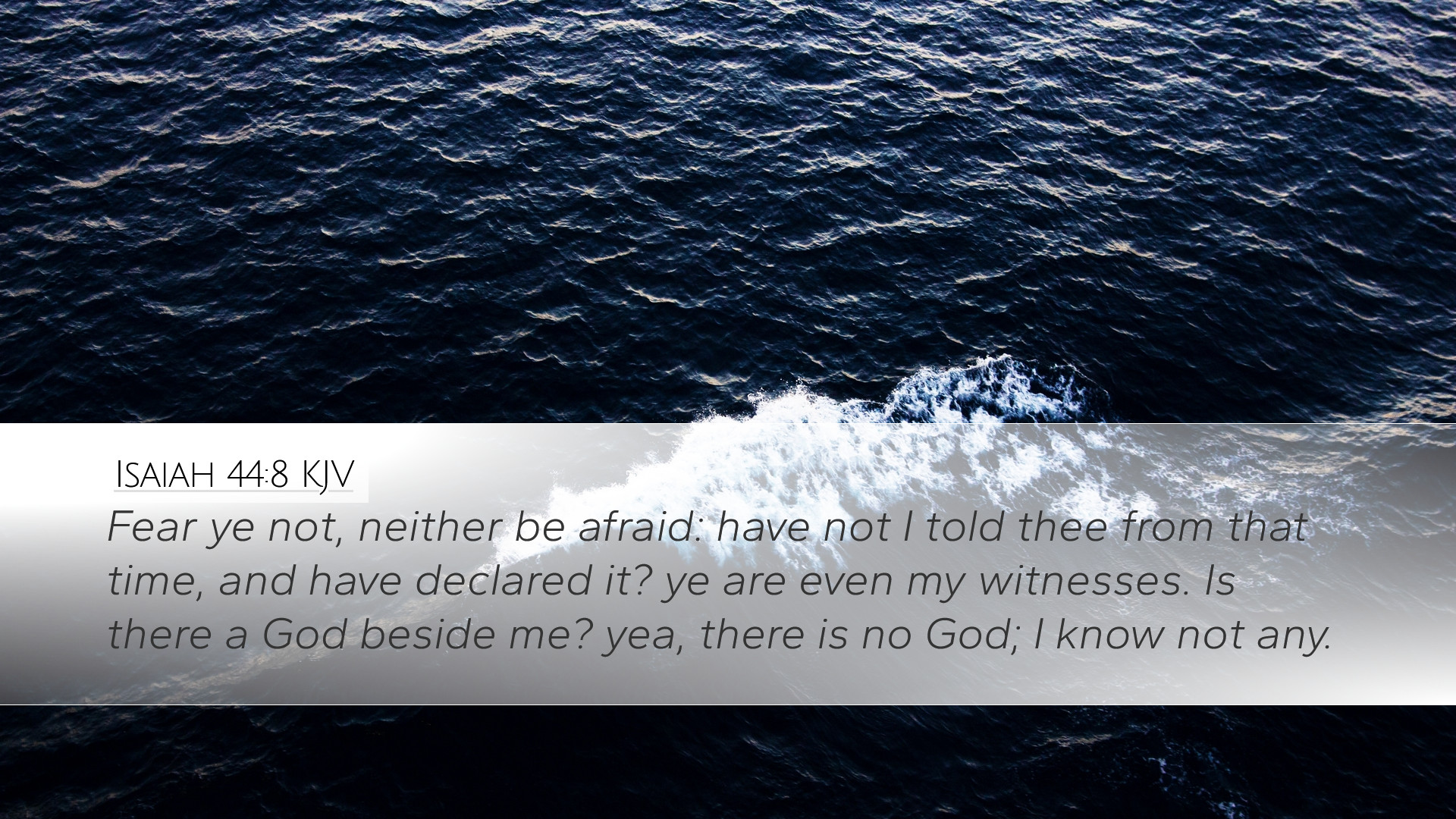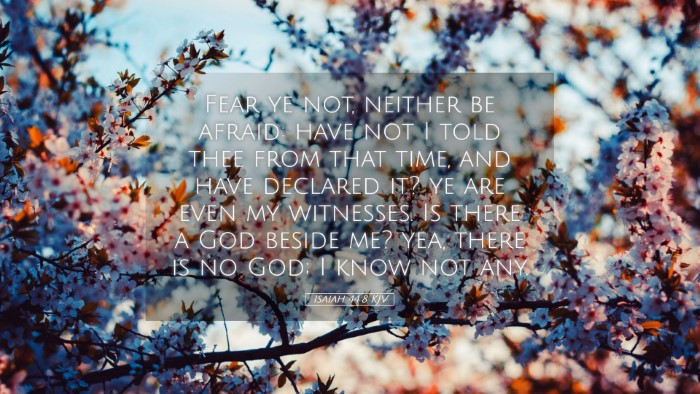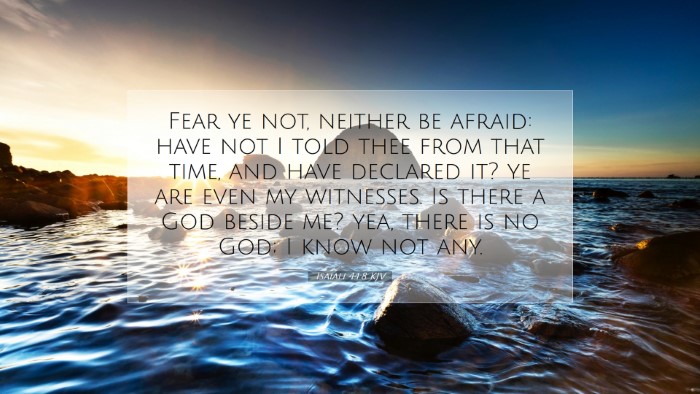Commentary on Isaiah 44:8
Isaiah 44:8 states: "Fear ye not, neither be afraid: have not I told thee from that time, and have declared it? ye are even my witnesses. Is there a God beside me? yea, there is no God; I know not any."
Introduction
This verse presents an affirmation of God's uniqueness and sovereignty. It calls believers to trust in God, who declares His power and deliverance before it happens. Through the lens of various public domain commentaries, we seek to deepen our understanding of this important scripture.
The Call to Fear Not
In the opening phrase, "Fear ye not," we see a repeated theme throughout Scripture where God reassures His people. Matthew Henry emphasizes that the phrase encourages believers to rely on God's promises, stating that there is no reason to fear when the Almighty is on their side.
Albert Barnes adds that the fear referred to is unfounded when one considers God's past faithfulness. He remarks that recognizing God's sovereignty should dispel any anxiety regarding future events.
Divine Assurance
God's assurance continues with "have not I told thee from that time, and have declared it?" This reflects God's foreknowledge and the prophecies He issues through His prophets. Adam Clarke notes that God's declarations serve as witnesses to His reliability. The faithful can draw confidence from prophecies that have come to pass, reinforcing their trust in God's Word.
The Role of Witnesses
When God states, "ye are even my witnesses," it indicates that the people of Israel are to bear testimony to His greatness. Matthew Henry comments that believers are called to share their experiences of God's deliverance, not only to affirm their faith but also to draw others to Him.
According to Barnes, this witness is not merely a personal testimony but also a collective affirmation of God's acts throughout history. The entire community of faith stands as a testament to His power and grace.
The Uniqueness of God
As the verse concludes with "Is there a God beside me? yea, there is no God; I know not any," it emphasizes the oneness of God. Adam Clarke discusses the importance of this assertion in a polytheistic context, where the Israelites were often tempted to worship other gods.
Henry notes that this declaration of God's singularity serves as an ultimate challenge to the surrounding nations and their idols, reinforcing the reality that no other entity possesses the power and authority of the true God.
Theological Implications
This verse has profound theological implications, particularly regarding God’s promises, the nature of faith, and the call to evangelism. It reassures believers that their faith is not misplaced but is anchored in the character of God who reveals Himself and acts in history.
Barnes emphasizes that understanding God’s past actions can provide the foundation for present trust and future hope. Thus, believers are called to live in light of His sovereignty, sharing His truth with a world that may not recognize it.
Conclusion
In summary, Isaiah 44:8 is a powerful reminder of God's unique identity and the reliance His people can have on Him. The insights from Matthew Henry, Albert Barnes, and Adam Clarke collectively emphasize the themes of reassurance, witness, and the singularity of God. As pastors, students, theologians, and Bible scholars engage with this text, it encourages them to reflect on their relationship with God and their role in proclaiming His greatness in a world filled with uncertainty.


